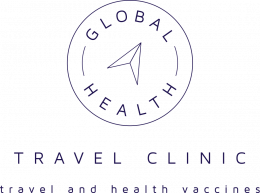Human rabies is present in 150 countries and on all continents except for Antarctica.
The main risks are;
- That rabies is usually fatal
- Manly in Asia and Africa
- With Children under 15
- Dogs, but include all animals both wild and domestic
The risk
Tens of thousands of people die each year from rabies, mainly in Asia and Africa, and 40% of people bitten by suspect rabid animals are children under 15 years of age. Rabies can be transmitted by any infected animal to humans but dogs are the main source of human rabies deaths, contributing up to 99% of all rabies transmissions to humans.
Rabies is a virus spread by contact with saliva from any infected wild or domestic animal (including bats) often via:
- a bite,
- a scratch
- or a lick to an open wound.
Human rabies is usually fatal.
Risk of rabies exposure increases with activities like cycling and running. Certain jobs, including vets, animal control and wildlife work are a significant risk. Volunteering in animal sanctuaries is also high risk. Longer stays increase risk of exposure. Children are at greatest risk, as they are most likely to touch animals, and may not report being bitten, scratched or licked.
Avoiding the risk
All travellers should avoid contact with any wild and domestic animals, including pets.
Pre-exposure vaccine can be considered by adults and children at increased risk of rabies or who are travelling to remote areas where medical care and rabies post-exposure treatment with rabies vaccine may not be available. This is normally a course of 3 vaccinations on day 0, 7 and 21-28 depending on the vaccine.
For more information see the patient information leaflet supplied with each course.
https://www.medicines.org.uk/emc/files/pil.1527.pdf
Action to take if bitten, scratched or an open would licked
As soon as possible after an animal bite, scratch or a lick to open skin, the wound/area must be flushed under a running tap for several minutes, then thoroughly washed with soap/detergent and water to remove saliva. A disinfectant such as 70% alcohol or iodine solution needs to be applied and the wound covered with a simple dressing. If animal saliva exposure (usually by spitting) to mucous membranes such as eyes, nose or mouth has occurred, wash thoroughly with clean water as soon as possible.
Urgent medical help must be sought in all cases, even if the wound or incident seems very trivial. Prompt post-exposure treatment is needed, even for travellers who already had a full pre-exposure vaccine course, as further vaccine doses are necessary.
Travellers who did not have or did not complete a rabies vaccine course before travel may need treatment with immunoglobulin under medical supervision, as well as a full vaccine course after any potential exposure.
In many world regions, both immunoglobulin and vaccines are unavailable. An urgent flight to the UK/nearby country for appropriate treatment and vaccines is then required. Travellers must ensure they have comprehensive travel insurance that covers medical evacuation costs.

